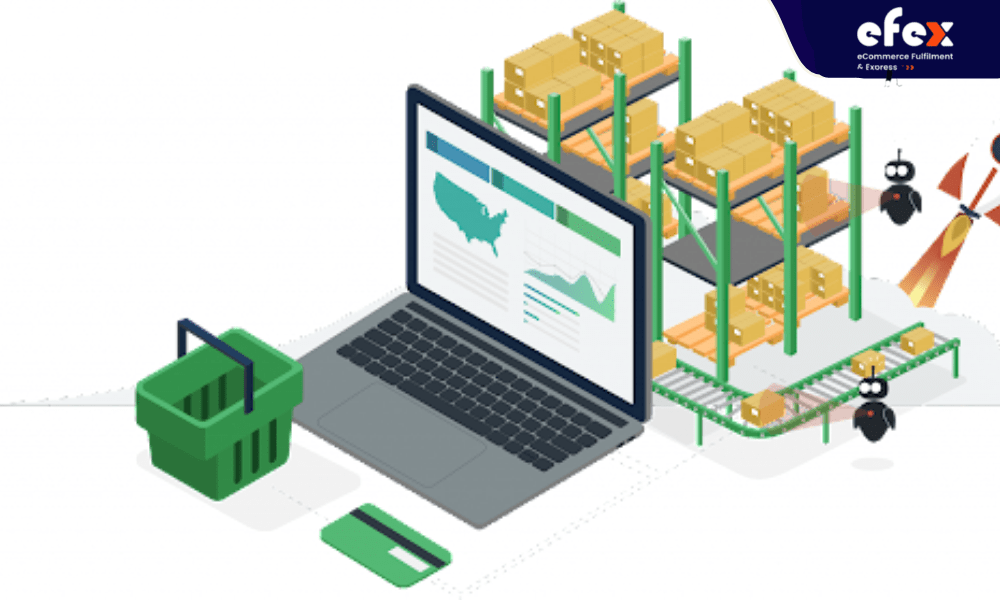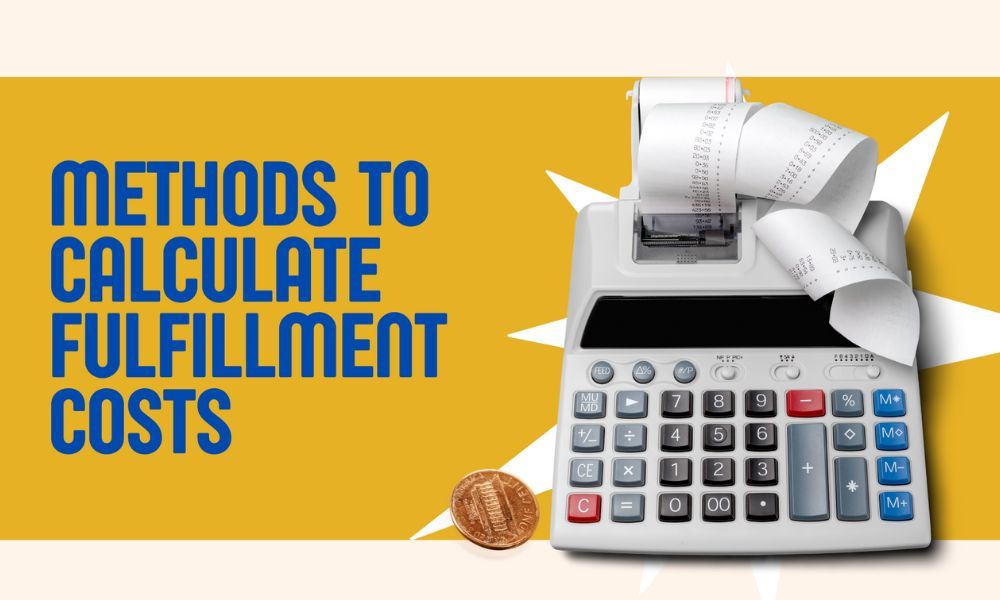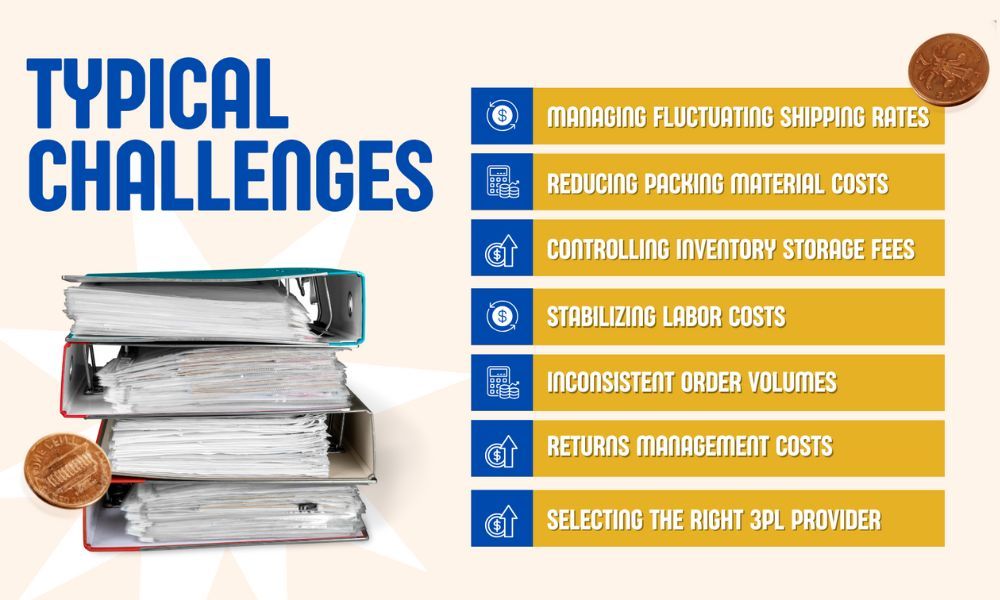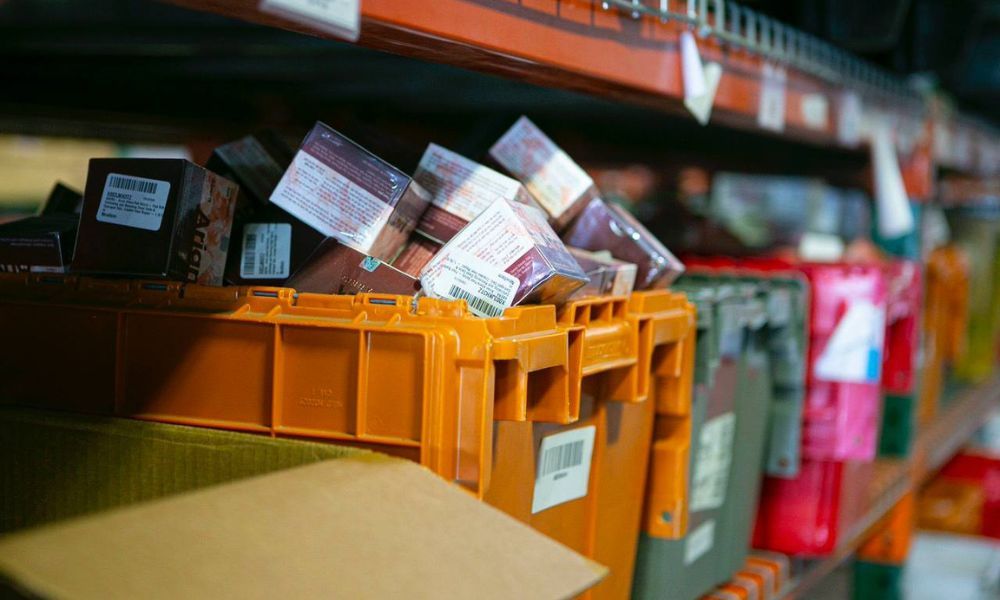
More Helpful Content
Fulfillment service is a service that will help you with several tasks, such as warehousing, product selection, packaging, shipping, etc. In order for your business to run smoothly, you need to learn about some of the costs that the service offers to optimize your pocket. This article will provide you with the most general information about order fulfillment cost - How much does it cost?
Order fulfillment cost refers to the total expenses incurred in the process of receiving, processing, and delivering customer orders. It encompasses various elements, including warehouse operations, labor, packaging materials, shipping, and even returns management. Efficient order fulfillment is essential for maintaining customer satisfaction and achieving profitability. Understanding these costs can help businesses optimize their supply chain strategies and improve overall efficiency.
Fulfillment cost consist of several key components that contribute to the overall expense of delivering goods to customers:

👉 Read More:
To accurately assess fulfillment costs, businesses need to evaluate various metrics. Let’s explore these with examples to illustrate their practical application:
Cost per order is determined by dividing total order expenses by the number of orders.
Cost per order is the average expense to fulfill a single order. It is calculated by dividing the total fulfillment costs by the number of orders processed within a specific period.
Example: Suppose a business incurs $10,000 in total fulfillment costs in a month and processes 500 orders. The cost per order is: 10,000/500 = 20 USD per oder
This metric highlights the efficiency of fulfillment operations. If this number seems high, the business can investigate areas for cost reduction, such as labor or shipping.
Cost per box is determined by dividing total order expenses by the number of boxes shipped.
Cost per box measures the expense incurred for packaging an individual shipment. This includes the cost of materials and labor required to assemble and seal each box.
Example: If the total packaging cost for a week is $1,200 and 300 boxes are shipped, the cost per box is: 1,200/300 = 4 USD per order
Businesses can reduce this cost by using bulk purchasing for materials or optimizing box sizes to prevent overuse of resources.
This metric is determined by dividing total fulfillment costs by net sales and multiplying by 100. This metric assesses fulfillment costs relative to revenue. It helps businesses understand how much of their sales income is allocated to order fulfillment.
Example: Assume a business has total fulfillment costs of $5,000 in a quarter and generates $50,000 in sales revenue. The cost as a percentage of sales is: (5,000/50,000)x100 = 10%
This figure indicates that 10% of the sales revenue is being spent on fulfillment, which can be benchmarked against industry standards to assess efficiency.

Third-party logistics (3PL) providers offer various pricing models to manage fulfillment operations. These models cater to different business needs and operational scopes, ensuring flexibility and efficiency. Let’s explore these pricing models in detail with scenarios:
This all-inclusive pricing model covers warehousing, picking, packing, and shipping fees. It’s ideal for businesses seeking simplicity and predictable costs.
Scenario: A small e-commerce company selling home decor items opts for a total fulfillment cost model with their 3PL provider. By paying a fixed monthly fee of $3,000, the company’s storage, labor, and shipping costs are all managed under one umbrella, allowing them to focus on marketing and sales.
This model charges businesses based on the number of items picked and packed. It’s suitable for companies with diverse product inventories and varying order sizes.
Scenario: An online retailer with a wide variety of electronics pays $2 per item for pick-and-pack services. If they receive 1,000 orders in a month with an average of 2 items per order, their pick-and-pack cost amounts to $4,000. This model helps them scale costs in alignment with sales volumes.
Fulfillment by Amazon (FBA) is a specialized model where Amazon handles storage, shipping, and customer service for sellers. Costs include storage fees, pick-and-pack charges, and shipping rates. While convenient, it can be expensive for low-margin products.
Scenario: A seller of custom-designed phone cases uses Amazon FBA. They are charged $0.87 per unit for storage and $2.50 for pick-and-pack. For 500 units sold in a month, their fulfillment cost is $1,685. Although the service provides seamless logistics, the seller evaluates whether margins are sufficient to justify FBA fees.
Managing fulfillment costs involves tackling several challenges that can impact a business’s bottom line. Here are detailed insights into these challenges, supported by practical examples:

Shipping rates often vary due to factors such as fuel surcharges, carrier demand, and seasonal changes. For example, during the holiday season, a small e-commerce business might face a 20% increase in shipping costs due to peak demand. Negotiating long-term contracts with carriers or using predictive analytics to plan shipments during low-demand periods can mitigate these effects.
The rising cost of raw materials, such as cardboard and plastic, can significantly impact expenses. A subscription box company, for instance, may experience a 15% increase in packaging costs due to global shortages of recycled paper. Switching to bulk purchasing or investing in sustainable, reusable packaging can reduce these costs over time.
Prolonged storage of unsold inventory can lead to high fees, especially with 3PL providers. A retailer with slow-moving seasonal goods may pay hefty storage charges during off-peak months. Implementing just-in-time (JIT) restocking or flash sales to clear inventory can help minimize these expenses.
Labor costs can vary based on market conditions and seasonal demand. For instance, during Black Friday, an online retailer may need to hire temporary staff at premium wages to manage order surges. Automating repetitive tasks, such as packing and labeling, can reduce dependency on manual labor and stabilize costs.
Businesses with unpredictable sales patterns often struggle with fulfillment inefficiencies. A boutique fashion store might receive 80% of its annual orders during two peak months, leading to underutilized resources for the rest of the year. Scalable warehouse operations and flexible staffing arrangements can address these fluctuations.
Handling returns is both labor-intensive and costly. A company selling electronics may need to inspect and refurbish returned items, incurring additional labor and material costs. Streamlining the returns process and offering detailed product descriptions to reduce return rates can significantly lower these expenses.
Partnering with the right 3PL provider can help businesses leverage economies of scale and specialized expertise. For example, a small cosmetics brand working with a 3PL provider that offers discounted shipping rates and advanced inventory management tools can reduce fulfillment expenses by up to 25%. Evaluating 3PL providers based on their pricing structure, technology, and service quality is essential for maximizing cost savings.
Integrating fulfillment software with other business systems, such as e-commerce platforms and inventory management tools, is crucial for streamlining operations. Features like real-time tracking, automated order processing, and inventory synchronization can significantly reduce costs and improve accuracy. For instance, an online fashion retailer using an integrated order management system can automatically update inventory levels, generate shipping labels, and notify customers of their order status in real-time, leading to improved efficiency and customer satisfaction.
Benefits of Software Integration
Choosing warehouses strategically located near major markets can reduce transit times and shipping costs. For example, a business targeting customers in both the East and West coasts of the U.S. might utilize fulfillment centers in New Jersey and California. This setup ensures quicker delivery times and lower shipping expenses for a broader customer base.
Factors to Consider for Strategic Location
Working with partners experienced in specific industries ensures that fulfillment processes align with unique business needs. Expertise in handling specialized products, such as perishable goods or hazardous materials, can enhance efficiency and compliance. For example, a pharmaceutical company working with a 3PL provider experienced in cold chain logistics ensures that temperature-sensitive products remain safe during transportation.
Key Advantages of Industry Expertise
EFEX offers comprehensive order fulfillment solutions tailored to businesses of all sizes. Their services stand out due to their versatility, technological integration, and strategic approach to logistics. Here’s how EFEX can transform your fulfillment operations:

Case Study: A small apparel brand partnered with EFEX to streamline its operations. By utilizing EFEX’s integrated technology and strategic warehouse locations, the brand reduced shipping times by 40% and cut fulfillment costs by 20%, leading to improved customer satisfaction and profitability.
With choosing EFEX, businesses can achieve streamlined operations, significant cost savings, and enhanced customer experiences, making them a trusted partner in the fulfillment landscape.
And that's all you need to note about the matter: Order Fulfillment Cost. Bear in mind that fulfillment cost is always an important part of any e-commerce business, which has a huge impact on customer experience, sales, and also the success of your business. Therefore, you should really spend time researching it carefully, choosing the service providers that perform reasonably, in accordance with your business needs as well as your pocket.
With EFEX, retailers can take advantage of volume-based pricing, advanced technology, and nationwide fulfillment centers while only paying for the services utilized. This enables online sellers to scale their business efficiently and cost-effectively. By leveraging an all-in-one order fulfillment solution, e-commerce merchants can focus on sales and marketing while leaving the operational heavy-lifting to experts.


